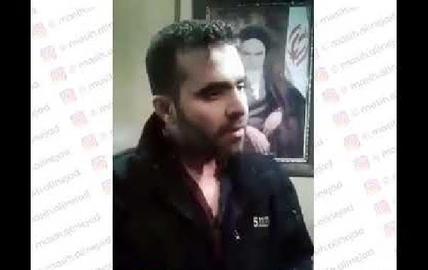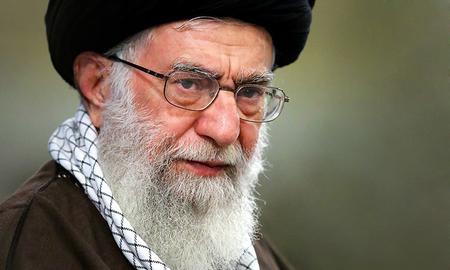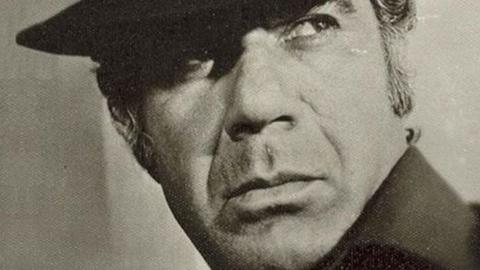In an unexpected move on May 29, Iran’s Supreme Leader Ayatollah Khamenei ordered Judiciary Chief Sadegh Larijani to immediately pursue a case of sexual abuse at a school in Tehran.
On Monday, May 28, the website Khabar Online reported that a male staff member at a private boys’ high school in Tehran had been arrested for sexually molesting students [Persian link]. “Since a few months ago, my son has been behaving aggressively and has been very nervous,” the father of one of the students told the website. “We thought he was sick so we got him to the doctor. The treatment continued until my son told us what had happened to him at school.” According to the father, the school employee showed the students obscene material on his mobile phone and then forced them to perform sexual acts.
After the man’s arrest, judiciary officials stated that the accused had confessed to showing the students obscene photographs, but had denied the sexual abuse charges.
On the same day as the Khabar Online story was published, relatives of more than 40 students filed a lawsuit against the offender, as reported by Mehr News Agency. Tehran’s Chief Prosecutor Abbas Jafari Dolatabadi told the media that the parents of 15 of the students had accused the person in question of “sexual offenses.” He did not reveal the name of the accused, but the Iranian Minister for Education Mohammad Bathaie said that he was not an employee of the ministry. He was, he said, the school’s assistant principal and had been put in charge of discipline.
The families have also accused Education Ministry officials of trying to hush the scandal and arrange for the case to be closed. But after Khamenei issued his command, ministry officials announced that they would pursue the case expeditiously.
Alireza Rahpeyma, the head of public relations for Tehran’s Education Bureau, said that the school’s principal had been suspended for two years. And, in an interview with the Iranian Labor News Agency (ILNA), Naser Kouhestani, the Director of the Education Bureau of Tehran’s 2nd District, said that the school might be closed permanently [Persian link].
As the exam season kicks off for Iranian students, the situation is likely to adversely affect all students at the school at the heart of the scandal, especially the victims — who now have to struggle with both the revelations and the consequences.
No Sex Education for Students
In recent years, the question of sexual abuse at Iranian schools has become a sensitive and controversial issue. But so too has sex education — and in particular, the Supreme Leader’s stance on it.
In 2017, Education Ministry officials had plans to implement UNESCO’s Education 2030 Framework for Action at Iranian schools. The framework includes guidelines about sexual education in schools at a level corresponding to the age of the students. But conservative principlists rose up against the plans and said that the UNESCO 2030 initiative promoted homosexuality and sexual promiscuity. Ayatollah Khamenei also opposed it, stating: "the UNESCO 2030 education agenda and the like are not agendas that the Islamic Republic of Iran should have to surrender and submit to... Why should a so-called international community — which is definitely infiltrated by the corrupt powers — have the right to make decisions for the various cultures among nations?”
The abuse case against Koran teacher Saeed Tousi has been particularly controversial and alarming. Tousi, who had on occasion been invited to recite the Koran at some of Khamenei’s meetings, was accused of child molestation in 2017. In addition to his links with the Supreme Leader, he had good relations with Ali Moghadam, head of public relations at the office of the Supreme Leader. Tousi was acquitted of the charges — but leaked evidence and documents revealed that Moghadam had interfered in the judicial process to save Tousi and ensure the case did not proceed.
Mahmoud Sadeghi, a reformist member of parliament from Tehran, indirectly referred to Tousi’s case when he commented on the recent case of sexual abuse. “The Supreme Leader’s order to the judiciary is cause for hope,” he tweeted. “Perhaps if the legal case of the victims of the sexual abuse by the [Koran teacher] had not been interfered with and the wronged adolescents had been supported, today we would not be witnessing a repeat of this tragedy in schools.”
Ayatollah Khamenei’s swift response appears to be an effort to compensate for the outcome of Tousi’s case, which led to a tsunami of accusations against the office of the Supreme Leader.
But there is a possible additional reason why Khamenei has responded so quickly, giving some indication of his views on the matter, or exposing his anxiety that the scandal could be reported widely outside Iran. “It is appropriate that you enforce God’s Hudud [punishments under Sharia] on the criminals, immediately after the trial,” Khamenei said. At the moment, only one person has been implicated and he is the single defendant in the case — but Khamenei’s use of “criminals” in plural has led to fears that the student victims of the sexual abuse could be charged with illegal sexual activity as well.
It is significant that Khamenei used the phrase "God’s Hudud.” If the charge of sodomy is proven and the students are included in the case, the victims could be sentenced to flogging. And in the case of sodomy being proven, the accused is likely to be sentenced to death — something that human rights activists strongly oppose, particularly in the international community.
No Clear Legal Definition for “Sexual Harassment”
In an effort “to pressure the authorities to act against the alleged abuser,” a family member of one of the victims sent a video (in Persian) to the rights activist Masih Alinejad. In it, the accused, who appears in handcuffs, denies having sex with the students, and states that he only showed the students pornographic videos on his phone “for fun.” If that is the case, then the crime becomes one of sexual harassment. However, Iranian law has no clear definition of “sexual harassment.”
The United Nations defines sexual harassment as “unwelcome sexual advances, requests for sexual favors, and other verbal or physical conduct of a sexual nature” [PDF]. Although Iranian law lacks similar definitions, sexual molestation and rape are seen as crimes under the laws of the Islamic Republic. But many lawyers believe that these laws do not stipulate for punishments that fit the crimes. Moreover, proving the crime itself is difficult.
Iran’s Islamic Penal Code defines three types of sexual crimes — “verbal sexual abuse,” “adultery” and “rape.” The minimum punishment for these offences is two months in prison and 74 lashes, while the maximum is a death penalty. And the law is also very complicated. For example, to prove the crime of rape, the accused must repeat his confession to the judge four times, or four “just” men — or at least three men and two “just” women — must testify. Also, weirdly, the length of the penetration can affect the sentence.
Such futile and archaic complexities of Iranian laws have made the prosecution of sexual crimes an uphill battle, and these processes continue to be controversial in and outside Iran. In this case, however, there are hopes that the order from the Supreme Leader might help the process to move forward.
More on child molestation and sex education in Iran:
Koran Teacher Accused of Molesting Children Acquitted, January 27, 2018
“It's a Great Honor to Violate Homosexuals’ Rights," January 15, 2018
UNESCO and Faux Reform in Iran, June 16, 2017
Khamenei Ratchets Up Criticism of Rouhani, June 12, 2017
The Leader, The Child Molester And His Victims, October 27, 2016
visit the accountability section
In this section of Iran Wire, you can contact the officials and launch your campaign for various problems


























comments